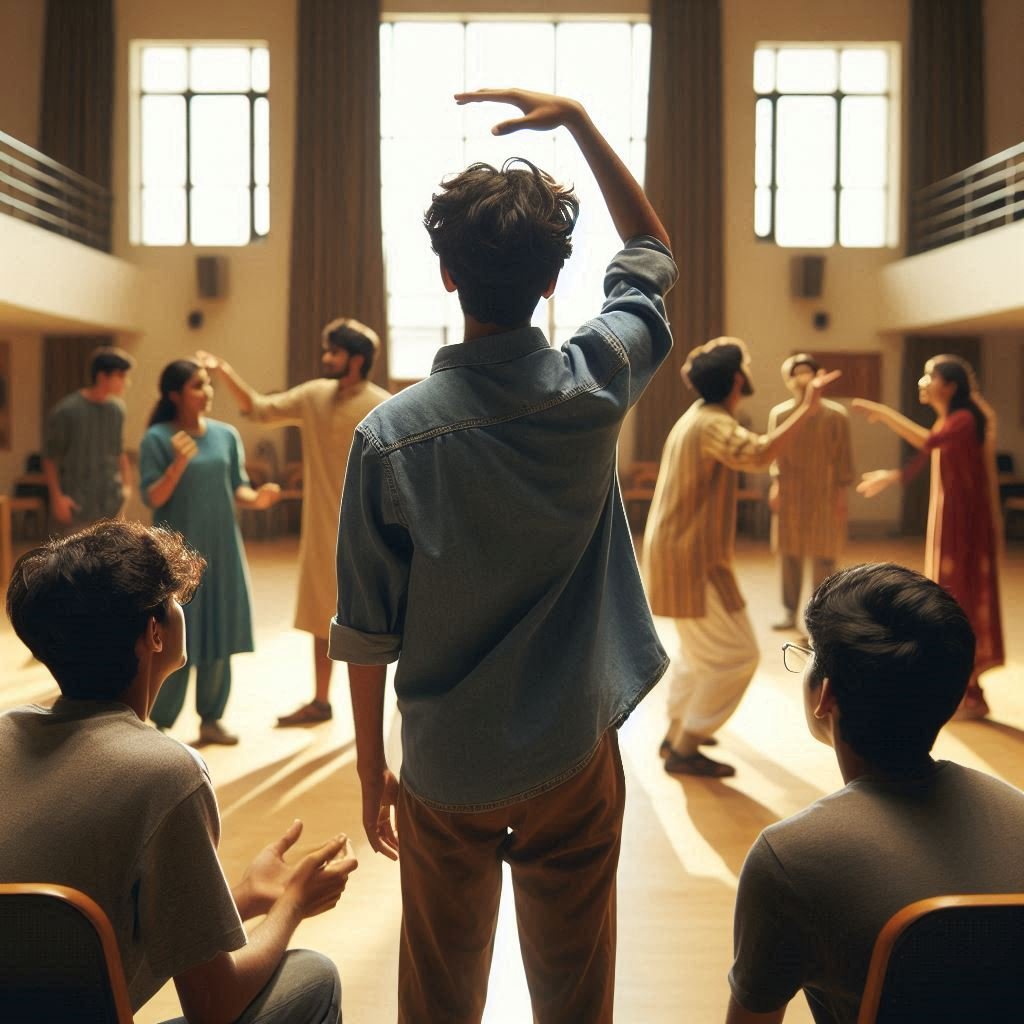
Introduction
Teenagers today are growing up in a world full of pressures — academic competition, social media comparisons, and uncertainty about the future. Amidst all this, one timeless tool continues to help them understand and express themselves deeply: theatre for self discovery. At Kaahe, we’ve used theatre across schools and colleges in Uttarakhand to spark real, visible transformation in teenagers. Not just on stage — but within.
This blog will explore 7 transformative ways theatre for self discovery helps teenagers build emotional strength, confidence, and clarity. Through movement, dialogue, imagination, and reflection, theatre becomes a safe and powerful space where teens meet themselves — sometimes for the first time.

1. Character Exploration Helps Teens Reflect on Their Own Identity
In every role a student plays, there’s a spark of their inner truth. When a teenager plays a character dealing with fear, injustice, or a tough decision, they begin to explore those same emotions within themselves. This process is not about pretending — it’s about gently uncovering.
For example, in one Kaahe workshop, a student named Prisha chose a role of a mother struggling with guilt. After performing the scene, she shared, “I didn’t know how much I avoid talking about emotions at home.” Theatre provided her a safe mirror to confront her own habits — a moment of true self discovery.
By portraying others, teens start to ask deeper questions: What values do I stand for? What do I avoid expressing? What makes me feel most alive?
2. Improvisation Exercises Encourage Authenticity
Improvisation is where magic happens. With no script to follow, teens must respond in the moment — not as someone else, but from their gut. It’s in these moments of spontaneity that their real voice emerges.
In our workshops, we often play a game called “What Happens Next?” where a student is given a random situation — like losing their phone or meeting a childhood friend — and they must act it out instantly. It’s not just about quick thinking. It reveals how they naturally react under pressure, what emotions come up, and where they feel blocked.
Through regular practice, they begin to trust their instincts and become more comfortable expressing their ideas and feelings without fear of judgment — one of the core outcomes of theatre for self discovery.
3. Voice and Body Training Builds Inner and Outer Confidence
Most teenagers are unaware of how they physically carry themselves. Slouched posture, nervous hand movements, low-volume speech — these non-verbal cues often mirror low self-esteem or anxiety. In theatre, students are taught to breathe deeply, project their voice, and use their body with intention.
One exercise we use is “The Power Walk” — students walk across the room embodying a certain emotion (confidence, fear, curiosity, joy). As they exaggerate and notice their body, they start becoming more aware of how they show up in life.
Eventually, this body awareness translates into better posture, clearer speech, and more assertive communication in real life — all starting from theatre for self discovery.
4. Storytelling Unleashes Self-Expression
Teenagers often struggle to talk about what they truly feel. But ask them to tell a story — fictional or real — and their emotions begin to pour out. Storytelling in theatre helps students give shape to their inner world.
We encourage teens to write and perform short skits based on their school life, friendships, or personal dreams. One boy, Adeel, performed a monologue about a student who wants to dance but is forced into engineering. After his performance, he shared that the character was based on himself. That moment was healing — not only for him, but for others who saw their truth in his story.
Theatre for self discovery is a platform where storytelling becomes therapy, performance becomes insight, and the stage becomes a space of emotional freedom.

5. Group Performance Builds Trust and Belonging
Self discovery is deeply personal — but it happens best in community. In theatre, students must depend on each other — remembering cues, supporting scenes, sharing vulnerability. This nurtures a powerful sense of trust.
At Kaahe, we’ve seen students from different backgrounds — the introvert, the loud leader, the daydreamer — come together to create something beautiful. In one school, a group created a 10-minute play about exam anxiety. They choreographed, rehearsed, failed, laughed, and performed — as a team. Afterward, they shared how connected and accepted they felt.
This sense of belonging helps teenagers open up, take healthy emotional risks, and begin to shed masks. Theatre for self discovery works because the journey is shared, not solitary.
6. Emotional Reflection Bridges Stage and Real Life
Unlike traditional theatre that ends with a curtain call, we always end our sessions with a circle of reflection. Here, teens talk about what they felt during the performance, what surprised them, or how they see themselves differently.
One powerful question we ask is: “Which part of today’s theatre exercise was hardest for you, and why?” The answers often lead to emotional breakthroughs — revealing fears, regrets, even dreams they’ve never voiced before.
This blend of performance + reflection turns theatre into more than drama — it becomes an emotional education tool, rooted in real life and real growth. This is the heart of theatre for self discovery.
7. Safe Risk-Taking Encourages Personal Growth
In school or family life, teens often fear “messing up.” But theatre encourages healthy risk — speaking loudly, trying a wild character, improvising emotions — with no fear of being wrong. The stage is a rehearsal room for courage.
At one of our weekend intensives, a shy student named Kavya volunteered to play an outspoken politician. She giggled, hesitated, forgot lines — but kept going. Her peers cheered. Later, she said, “That was the first time I wasn’t scared of being weird.”
Moments like this help teens stretch their emotional boundaries. Over time, they become more expressive, adaptable, and resilient — not just on stage, but in life.
The Psychology Behind Theatre for Self Discovery
Modern psychology confirms what theatre teachers have always known: role play, improvisation, and storytelling activate core parts of the brain responsible for emotional regulation, empathy, and memory.
According to a 2023 study published in the International Journal of Youth Development, adolescents involved in expressive arts showed significantly higher emotional resilience and self-awareness than those engaged in traditional extracurriculars. This aligns with Kaahe’s on-ground experience: we’ve seen students bloom emotionally after just 2–3 theatre sessions.
How Schools and Parents Can Support
For Schools:
- Incorporate weekly theatre warm-ups in assembly or value education classes
- Host self-expression theatre circles during weekends or vacation breaks
- Partner with organizations like Kaahe to conduct structured, reflective theatre workshops
For Parents:
- Encourage your teen to join local theatre groups — even if they’re shy
- Create safe space at home to express emotions and stories
- Watch plays or storytelling performances together and discuss characters
Supporting theatre for self discovery is one of the best gifts adults can give to teenagers — a space to become who they truly are, without pressure or perfection.
Conclusion
Theatre isn’t just for actors. It’s for anyone who wants to understand themselves more deeply, connect with others authentically, and express their truth with courage. For teenagers navigating some of the most intense years of emotional development, theatre for self discovery offers not just performance — but healing, insight, and growth.
At Kaahe, we’ve witnessed the transformation of hundreds of students across Uttarakhand — quiet teens finding their voice, confused students gaining clarity, and anxious minds becoming bold hearts. And it all begins when the curtain rises.
🎭 Bring Theatre for Self Discovery to Your School
Want to help your students grow emotionally, creatively, and confidently? Partner with Kaahe to bring our interactive theatre for self discovery workshops to your school or youth center.


